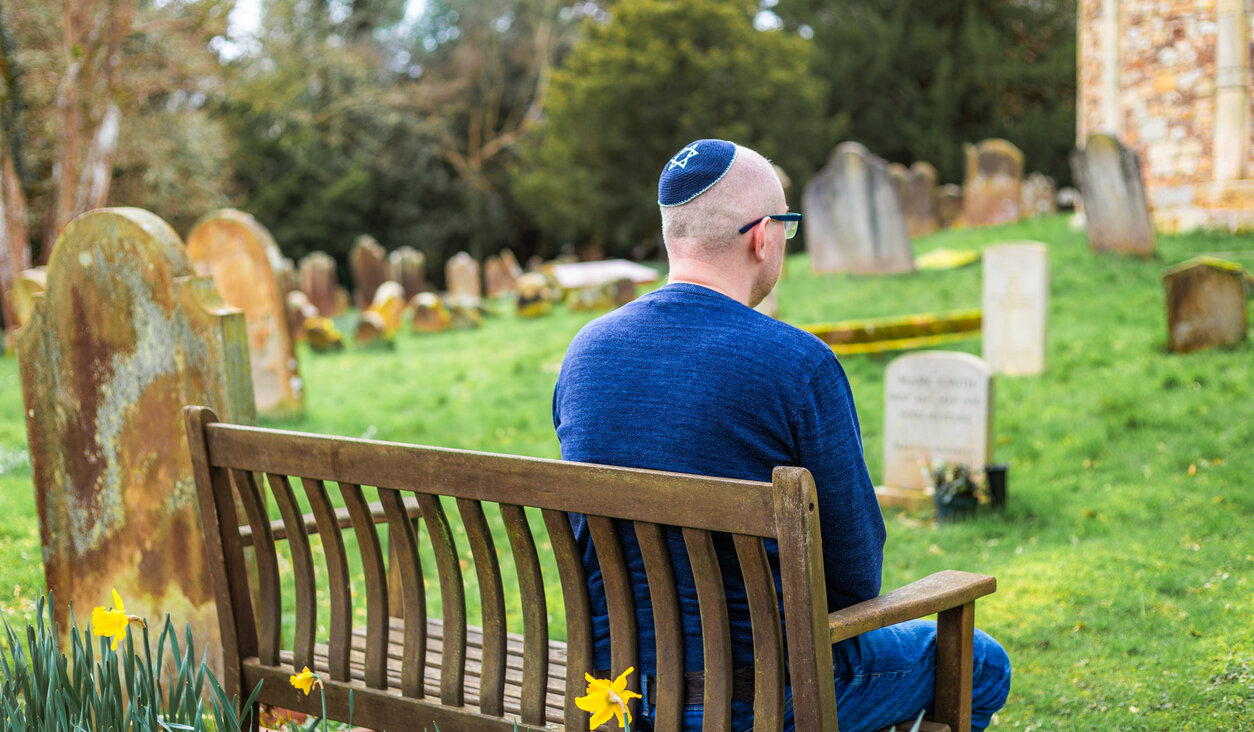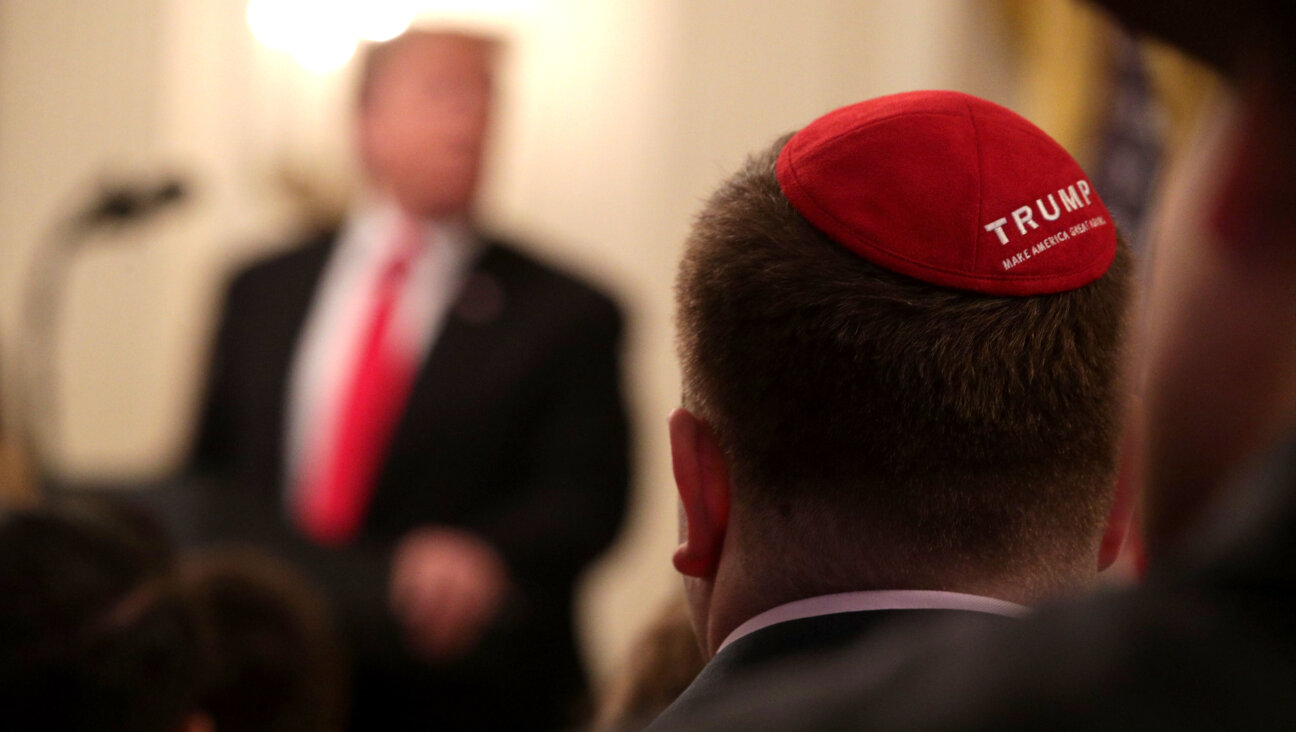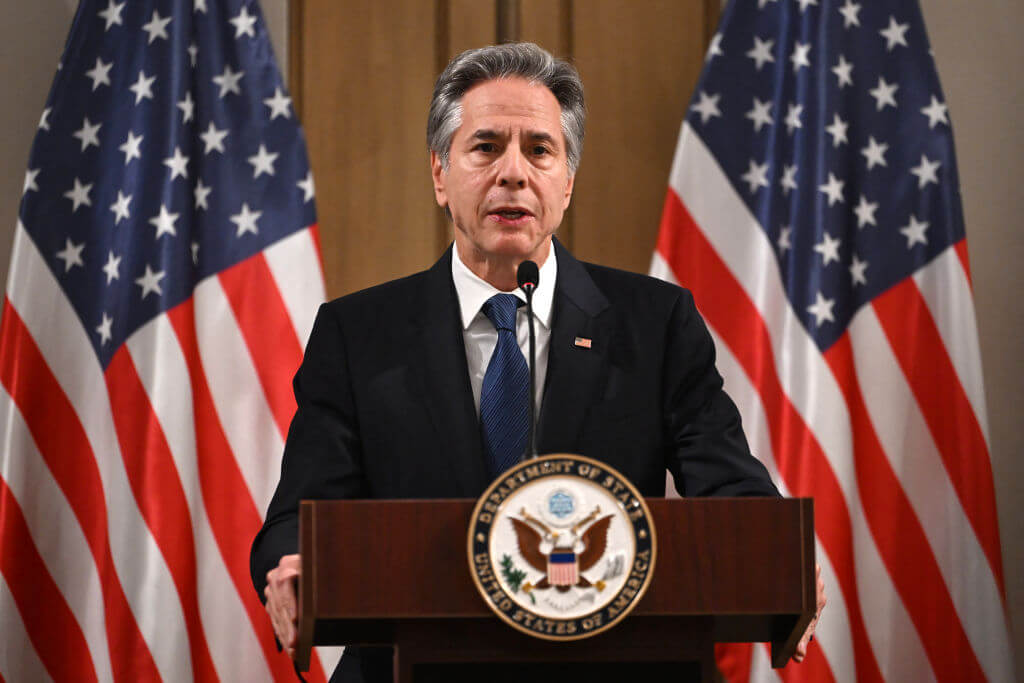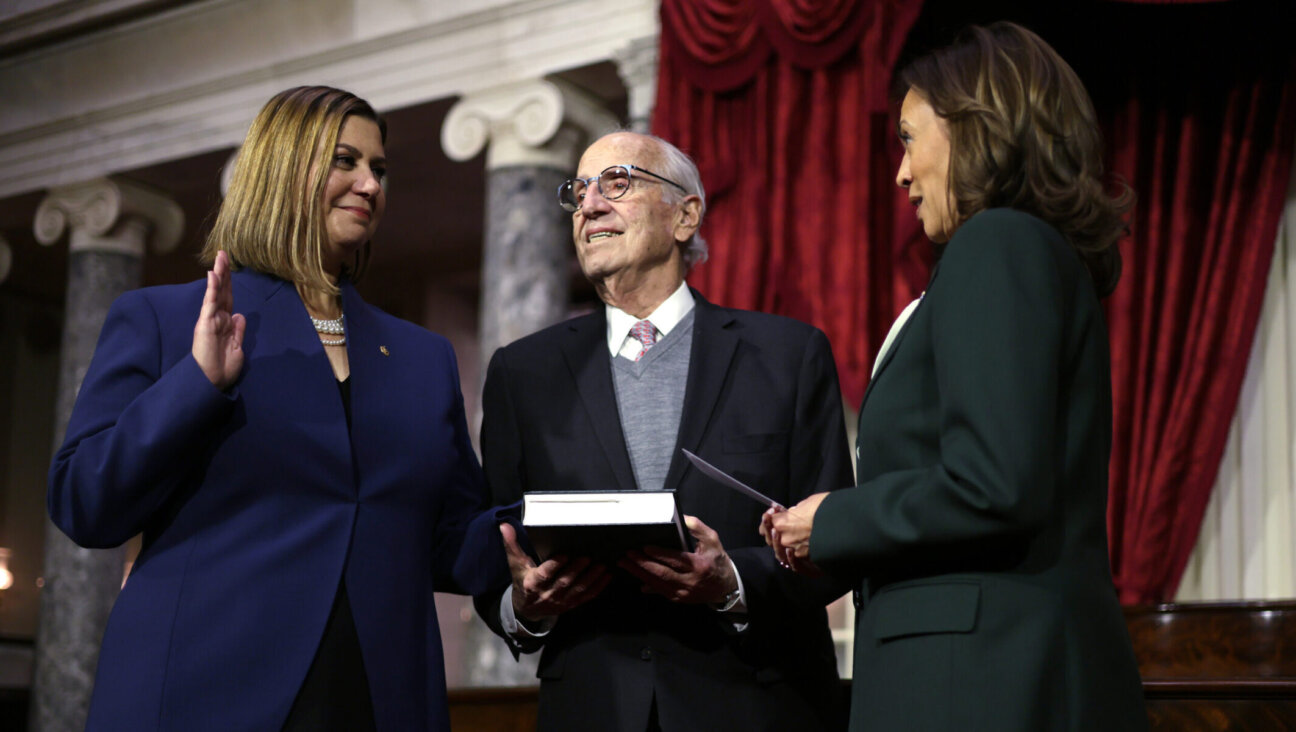New Egalitarian Yeshiva Prepares To Go Full Time
On a recent weekday summer morning on Manhattan’s Upper West Side, the second floor of West End Synagogue was buzzing. Thirty-six students, divided into pairs, clustered around tables, poring over open Talmuds. Some of the beginners flipped through lexicons, trying to puzzle out obscure words, while more advanced students debated that day’s text and compared it with other commentaries. Amid the murmured discussions, students occasionally broke out into snatches of Jewish songs, and one student, in an apparent effort to rouse her weary brain, hopped up to do a few jumping jacks.
The setting couldn’t have been an Orthodox yeshiva, because the students were coed. It couldn’t have been a class in a rabbinical seminary, because only a couple of the students want to become rabbis. It couldn’t have been an adult education class, because the students were still at the beginning of a 14-hour day. In fact, it could only have been Yeshivat Hadar. For the past two summers, students from all over America, and even a couple from abroad, have traveled to New York to immerse themselves for eight weeks in ancient Jewish texts, Jewish philosophy, prayer and even a dash of community service. Now the school’s founders are working out plans so that in the fall of 2009, Yeshivat Hadar will open its doors as North America’s first full-time egalitarian yeshiva.
“It’s all in the service of working to build an egalitarian religious society,” said Rabbi Elie Kaunfer, one of the yeshiva’s co-founders. “We’re widening opportunities for people who have an unabashed desire to engage with the Jewish tradition and express egalitarian values.”
Kaunfer co-founded Yeshivat Hadar with rabbis Ethan Tucker and Shai Held, and all three are closely tied to the independent minyan movement, particularly the Upper West Side minyan Kehillat Hadar. The yeshiva is separate from Kehillat Hadar, but it is part of the efforts of the school’s founders to weave together the members of the independent minyan movement into a nationally linked network. The students of the yeshiva, they believe, can become the backbone of the minyans, and, more broadly, of Jewish communities across the country.
Yeshivat Hadar is aimed at Jews in their 20s and early 30s who, Kaunfer said, “are going to have a multiplier effect on the Jewish community.” The aim is not to produce the next crop of rabbis but rather serious Jews who don’t necessarily make their Judaism into a career. To that end, the three founders are looking to recruit 15 to 20 students for the year-round yeshiva, drawn in part from college campuses and minyans.
The idea of intensive text study in an egalitarian environment is not wholly new. Since 2001, the Northwoods Kollel at Camp Ramah in Wisconsin has offered a summer program of egalitarian text study, and the Pardes Institute in Israel offers a yearlong program for men and women. But none offers the of a year-round instruction for laypeople in North America that Yeshivat Hadar aims to provide.
Jonathan Sarna, a professor of American Jewish history at Brandeis University, argues that the founding of such a yeshiva reflects the intersection of several trends in contemporary Judaism: the emphasis on highly educated laity that originated in the Orthodox world; the rigorous study of texts taught in the growing day school movement, and the egalitarianism that had its origins in the non-Orthodox world. The founders themselves, however, carefully steer clear of denominational politics, and the students at the summer programs have come from backgrounds ranging from secular to Orthodox.
Prospective students will need at least a basic proficiency in Hebrew — enough to navigate a simple sentence of Talmud or Torah — though the founders expect that some students, like those in the summer program, will be experienced talmudists. Those who are accepted will go through a rigorous program of study that includes Talmud, the Bible, Jewish thought, a community service project and communal prayer three times a day. They also will receive a stipend to cover the cost of their room and board.
The full-year program will run for nine months out of the year. The founders expect that most of the students will be full time, although there will be opportunities for people to sign up for part-time classes. The summer yeshiva sessions will continue to operate, as well.
The founders anticipate that the year-round yeshiva will cost slightly more than $1 million annually to run, and they are in the process of raising money. Their efforts got a major boost last January, when Tucker received a two-year, $200,000 fellowship from the Harold Grinspoon Foundation, and again in May when the Avi Chai Foundation gave Kaunfer a three-year fellowship worth $225,000. They expect to raise the rest from foundations and private donors.
The founders of Yeshivat Hadar are wagering that there is an untapped market in the United States for students who want to spend long hours every day studying for the sheer love of learning Jewish texts. Those who sign up will get no degree or certificate, just the satisfaction of study. Still, if the preliminary reviews from the summer students are anything by which to judge, they may be on to something.
“I get to learn Torah from some of the most incredible teachers in an egalitarian setting,” said Sarah Mulhern, a recent Brandeis graduate who attended this year’s summer session. “What could be better?”
A message from our Publisher & CEO Rachel Fishman Feddersen

I hope you appreciated this article. Before you go, I’d like to ask you to please support the Forward’s award-winning, nonprofit journalism so that we can be prepared for whatever news 2025 brings.
At a time when other newsrooms are closing or cutting back, the Forward has removed its paywall and invested additional resources to report on the ground from Israel and around the U.S. on the impact of the war, rising antisemitism and polarized discourse.
Readers like you make it all possible. Support our work by becoming a Forward Member and connect with our journalism and your community.
— Rachel Fishman Feddersen, Publisher and CEO




















